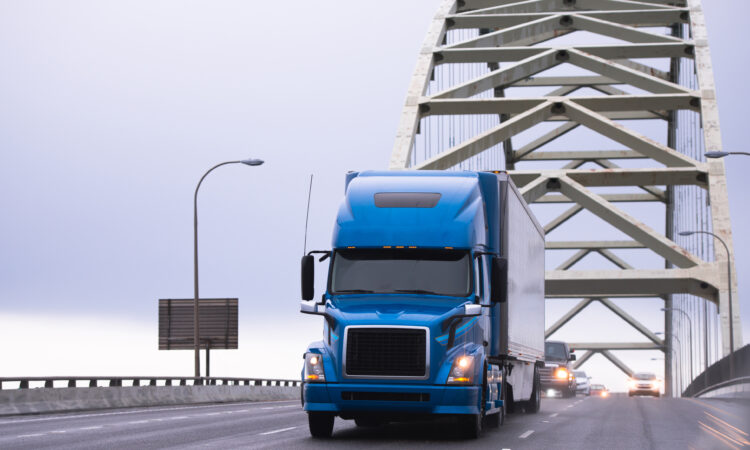The trucking industry is essential for maintaining supply chains across North America, and it faces unique safety challenges every day. With the increasing complexity of logistics operations and the advent of advanced technologies, maintaining safety has become a dynamic and multifaceted task. Challenger Motor Freight, one of Canada’s largest privately owned trucking companies, stands out as an example of how industry leaders are adapting to ensure safer roads and better working conditions for drivers.
The Human Side of Safety
Driver well-being is the most important factor in trucking safety. Industry leaders recognize issues such as fatigue, stress, and mental health directly impact road safety. Paul Weatherbie, Marketing Communications Manager, agrees with this statement: “Driver fatigue is one of the biggest safety risks we face. Addressing this requires more than simply obeying hour-of-service service regulations–it’s about management creating a culture where drivers are supported to make safe choices, even when they are being pressured to do otherwise.”
The company’s approach includes ample rest breaks, route optimization to avoid long-haul stress, and wellness programs that promote mental and physical health. This mirrors broader industry trends, where stakeholders are rethinking driver schedules and support systems to prioritize safety.
Weathering the Storm: A Canadian Perspective
For carriers operating in Canada, unpredictable and often severe weather conditions present another layer of complexity. From icy highways to sudden snowstorms, these challenges demand a proactive safety culture. Challenger consistently provides its drivers with ongoing training, ensuring preparedness for extreme conditions. Pre-trip inspections and emergency protocols are standard, with drivers trained to prioritize safety over deadlines when weather conditions deteriorate.
“We often remind our drivers that no load is worth a life,” says Einwechter, adding that Challenger drivers can make their own judgment calls on the road, supported by real-time weather monitoring systems and guidance.
Technology: An Ally in Safety
The standard of safety in the trucking industry is set for change as a result of technological innovations. Fleet owners and managers are becoming more and more reliant on telematics systems to assess and evaluate vehicle, driver, and environmental parameters in real time. Such instruments also make it possible to actively manage maintenance and thus decrease the chance of failure of the equipment, as well as monitor aggressive driving patterns such as hard braking or speed violations.
For companies like Challenger, the combination of technology with human touch is crucial. Their fleet includes collision avoidance systems, lane departure warnings and dashboard cameras fusing several safety strategies. However, Einwechter emphasizes that technology is not a replacement for skilled driving: The best technology in the world won’t compensate for inexperience or poor judgment. It’s about empowering drivers with tools to make safer decisions.”
Regulatory Challenges and Industry Responsibility
The trucking industry operates within a complex regulatory environment that mandates safety protocols, from hours-of-service limits to vehicle inspections. While these regulations set a baseline, they don’t always account for the nuances of on-the-ground operations. Industry leaders, including Challenger, argue for a collaborative approach where regulations evolve alongside technological and operational advancements.
Einwechter has voiced his thoughts on this topic, stating, “Safety regulations are essential, but they need to be practical and responsive to the realities of modern trucking. Open dialogue between regulators and carriers is crucial to create policies that truly enhance safety.”
Looking Forward: Collaborative Solutions
The trucking industry is increasingly moving towards partnerships as a solution to safety challenges. Collaborations between carriers, technology providers, and regulatory bodies aim to establish best practices and share innovations that benefit the entire industry. Challenger’s participation in industry forms and pilot programs for emerging technologies showcases its role as a leader in advancing safety standards.
A Collective Responsibility
Safety in the trucking industry is a shared responsibility among drivers, fleet operators, and policymakers. While technology and training are critical, the human element—understanding and respecting the challenges drivers face—is equally important. Challenger Motor Freight’s approach exemplifies this ethos, striking a balance between operational efficiency and the imperative to protect lives.
As the industry navigates evolving demands and integrates new technologies, safety will remain a defining factor in its success. Companies like Challenger are helping pave the way for a safer, more innovative future in transportation.
TruckstopCanada


